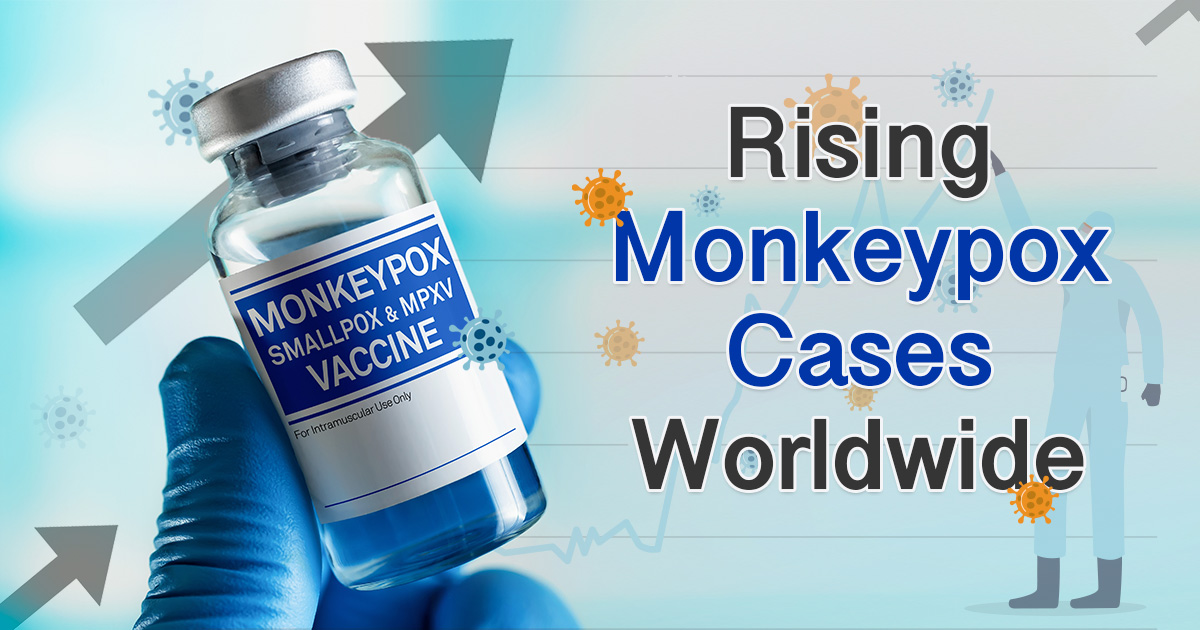
The World Health Organization (WHO) has recently reported an escalating number of Monkeypox infections worldwide. This contagious virus is similar to Smallpox. The WHO European Region reported the most laboratory-confirmed cases (2933/3413; 86%). In response to this outbreak, many countries have initiated vaccine rollouts to halt the spread of the virus. However, a lack of appropriate logistics can stall these initiatives. If inefficient transportation and distribution systems, vaccines will not be delivered to those in need on time.
The World Health Organization has raised the virus’s danger level to its highest point, labeling it a public health emergency of international concern. The rare designation indicates that the WHO now considers the epidemic a significant global health hazard. Therefore, a global response must prevent the outbreak from spreading and becoming a pandemic.
Although the statement does not impose obligations on national governments, it is a strong reminder of their responsibilities. The World Health Organization can only provide suggestions and advice to its member nations, not commands. Member states must report events that endanger global health.
Is Monkeypox a New Virus?
Unlike Covid-19, Monkeypox is not a brand-new disease. The virus was first discovered in Danish captive monkeys in 1958, and the first human case was documented in Zaire, now known as the Democratic Republic of Congo, in 1970.
Like SmallpoxSmallpox, Monkeypox is a viral disease belonging to the same family. Smallpox was finally eradicated in 1980 after decades of collaboration by the World Health Organization and national health authorities.
Current Vaccine Strategies to Combat Monkeypox
Vaccines can be effective tools for protecting people from monkeypox illness when appropriately administered before or after recent exposure. Because Monkeypox is not a new virus, vaccines and antivirals are already available to prevent and treat the illness it causes. To halt the epidemic, the United States is distributing tens of thousands of doses of a vaccine called Jynneos. In addition, in 2019, the Food and Drug Administration approved a two-dose vaccine against Monkeypox and SmallpoxSmallpox for people aged 18 and up at high risk of infection.
Vaccine Logistics: How Can It Help Fight The Virus?
Vaccine logistics play a significant role in the success of any vaccine rollout and in ending the virus. A well-organized and efficient system can help give life-saving vaccines to those needing them quickly and efficiently. Here are some ways that vaccine logistics can help make sure that a rollout is successful:
- Helping to ensure that the correct vaccine is delivered to the right location.
- Tracking inventory levels and ensuring that stock is always available.
- Managing transportation so that centers can receive vaccines quickly and safely.
- Providing training for staff on how to administer vaccines correctly.
All of these aspects are crucial for a vaccine rollout to be successful. Monkeypox is a severe disease, and countries must have systems to ensure that everyone who needs a vaccine can get one. With .suitable systems in place, governments can ensure that their people are protected from this deadly disease.
SEE ALSO:
